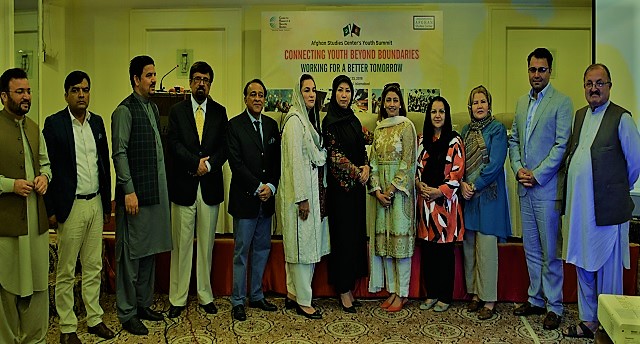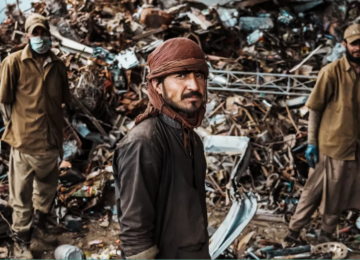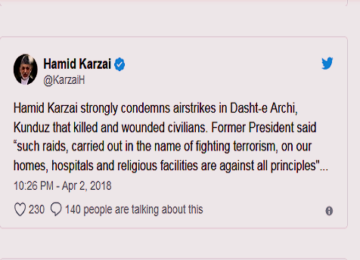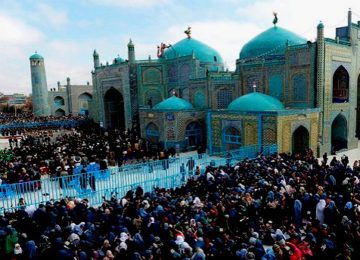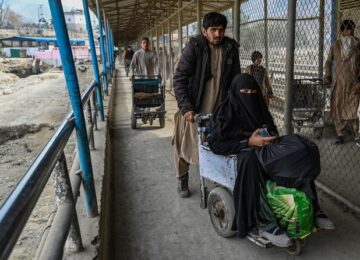August 27, 2019
“It is very heartening as well as my first time to be sitting across an assembly of youth from across the border. I will definitely report to the parliament about this and ask them to create a parliamentary caucus for Pak-Afghan relations,” Member of Parliament Ms. Mehnas Akbar Aziz stated this while speaking to a gathering of Pakistani and Afghan youth alongside high-level distinguished speakers from both countries at the Youth Summit organized by Afghan Studies Center in Islamabad on August 23, 2019. The summit focused on connecting youth beyond borders to work for a better tomorrow and was attended by a high-profile 13 member visiting Afghan delegation and young representatives from High Peace Council, Kabul.
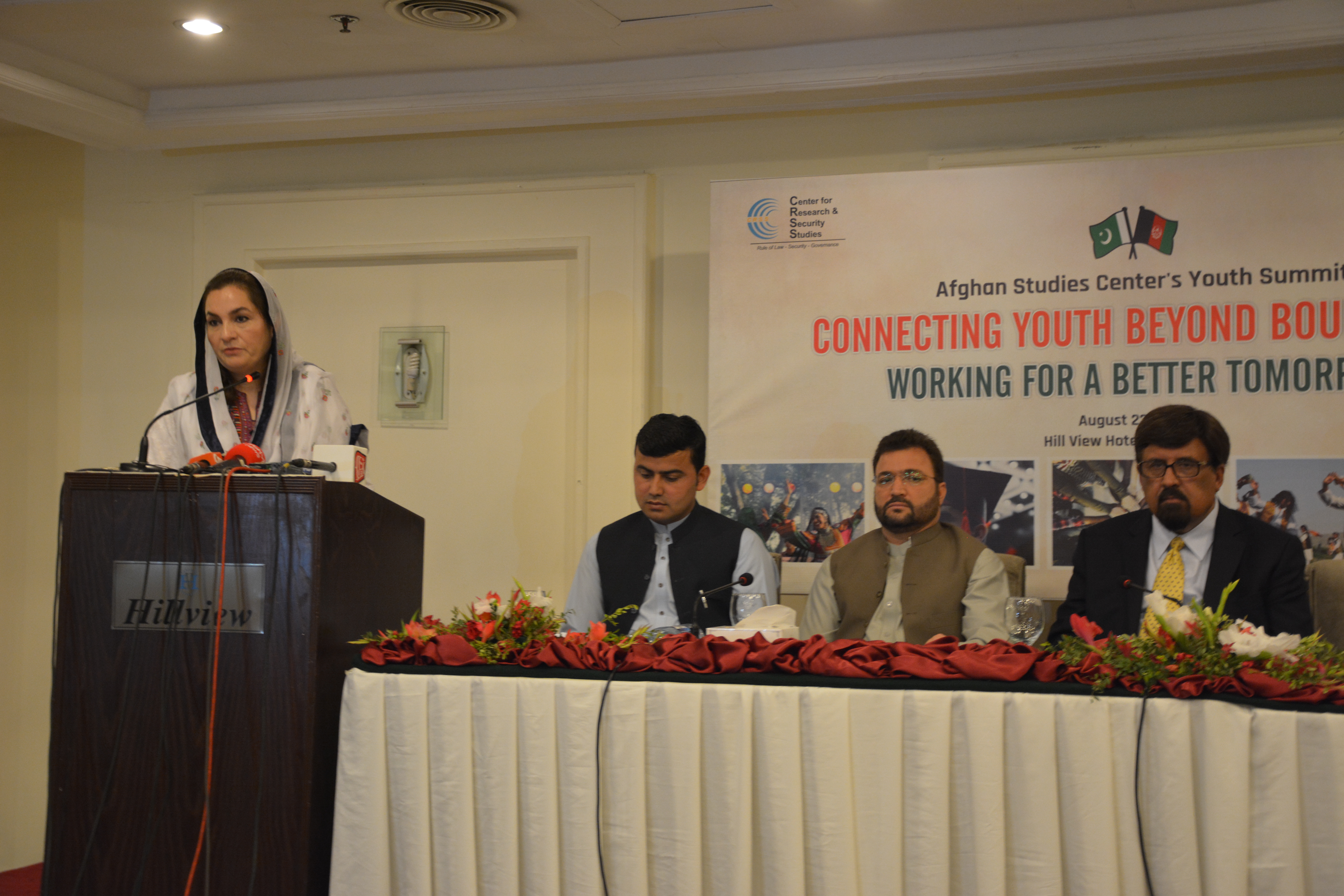
Earlier, in the opening remarks, Sitwat Waqar Bokhari, Senior Research Fellow at CRSS and Program Manager for Afghan Studies Center, warmly welcomed the distinguished guests and thanked Pak-Afghan dignitaries for taking out the time to interact with the youth from both countries. She apprised the audience that the primary objective of the Afghan Studies Center is to encourage peaceful co-existence based on universal values of neighborhood. By providing a platform for the youth of the two countries to interact, exchange ideas and engage in joint research ventures, the center aspires for peace through an informed discourse between the two nations. The initiative is principally focused on inculcating critical thinking and helping the youth become messengers of peace and cooperation beyond boundaries; working for a better tomorrow.
Former member of Afghan Parliament Khalid Pashtoon, heading a visiting high-profile Afghan delegation also present, expressed that he was delighted to see the youth of Pakistan and Afghanistan together under one roof. “This opens the roads for consensus towards a better and progressive future. Both countries were very close few decades ago, then bad things happened and there emerged a space between us, the two neighbors. Though, we miss those old days, when we used to be like twin brothers. However, I hope that once peace prevails in Afghanistan in the context of Doha talks, the two nations would get closer once again. Most of the issues between Kabul and Islamabad are linked with security; once the security issue is resolved in the bigger picture, everything else will fall in place,” he said, giving hope to the youngsters present.
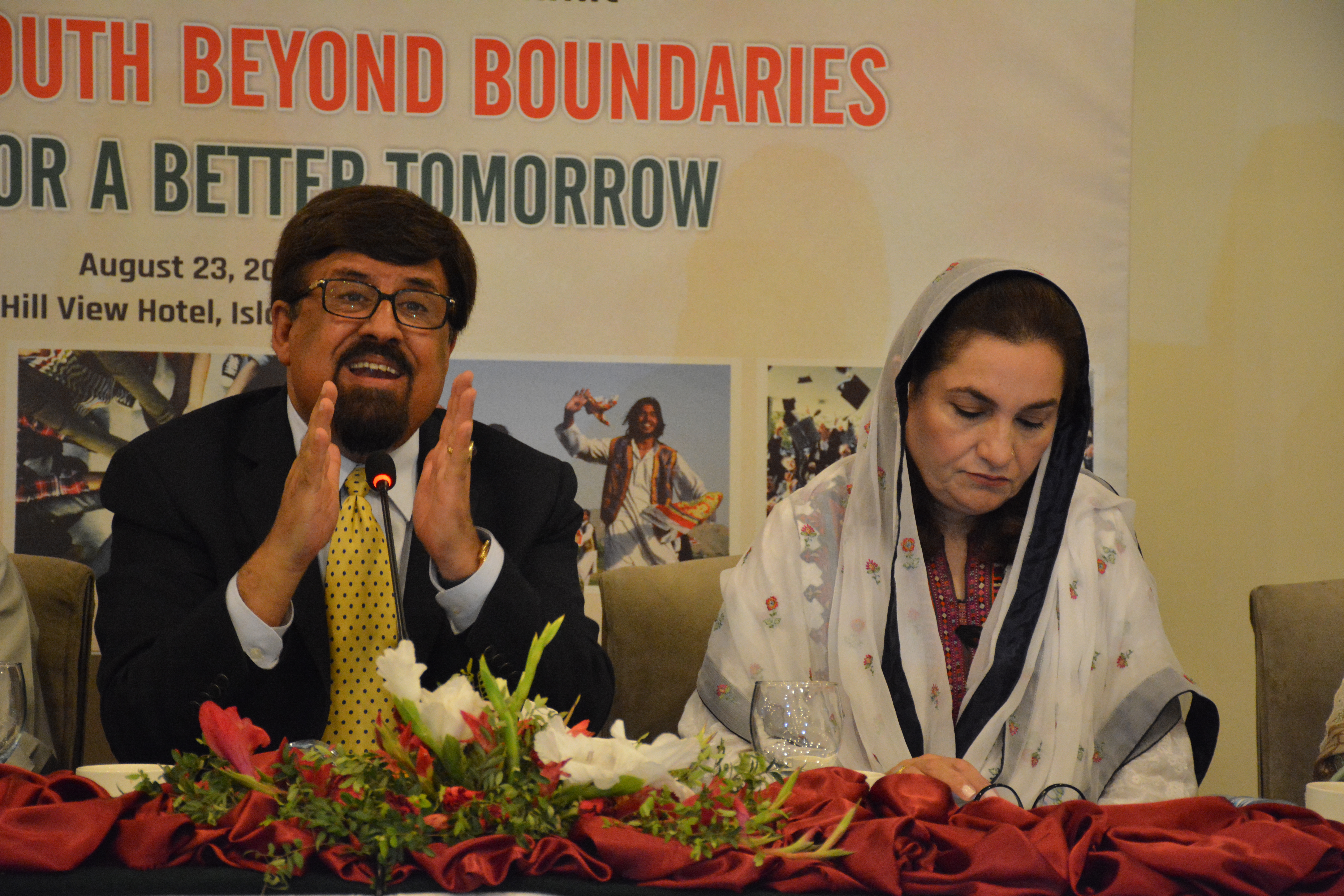
Pashtoon further stated that, in recent years, a lot has been done regarding bilateral relations. “We have come a long way. One such example is opening of the Torkham border round the clock. It will help facilitate cross-border mobility and will also increase the trade volume. The surge in trade will result in increased profits across the border; reinforcing peace and better bilateral relation. It is our responsibility to give the youth a hope, so that they can play a key role in bringing sustainable peace,” added former Afghan legislator.
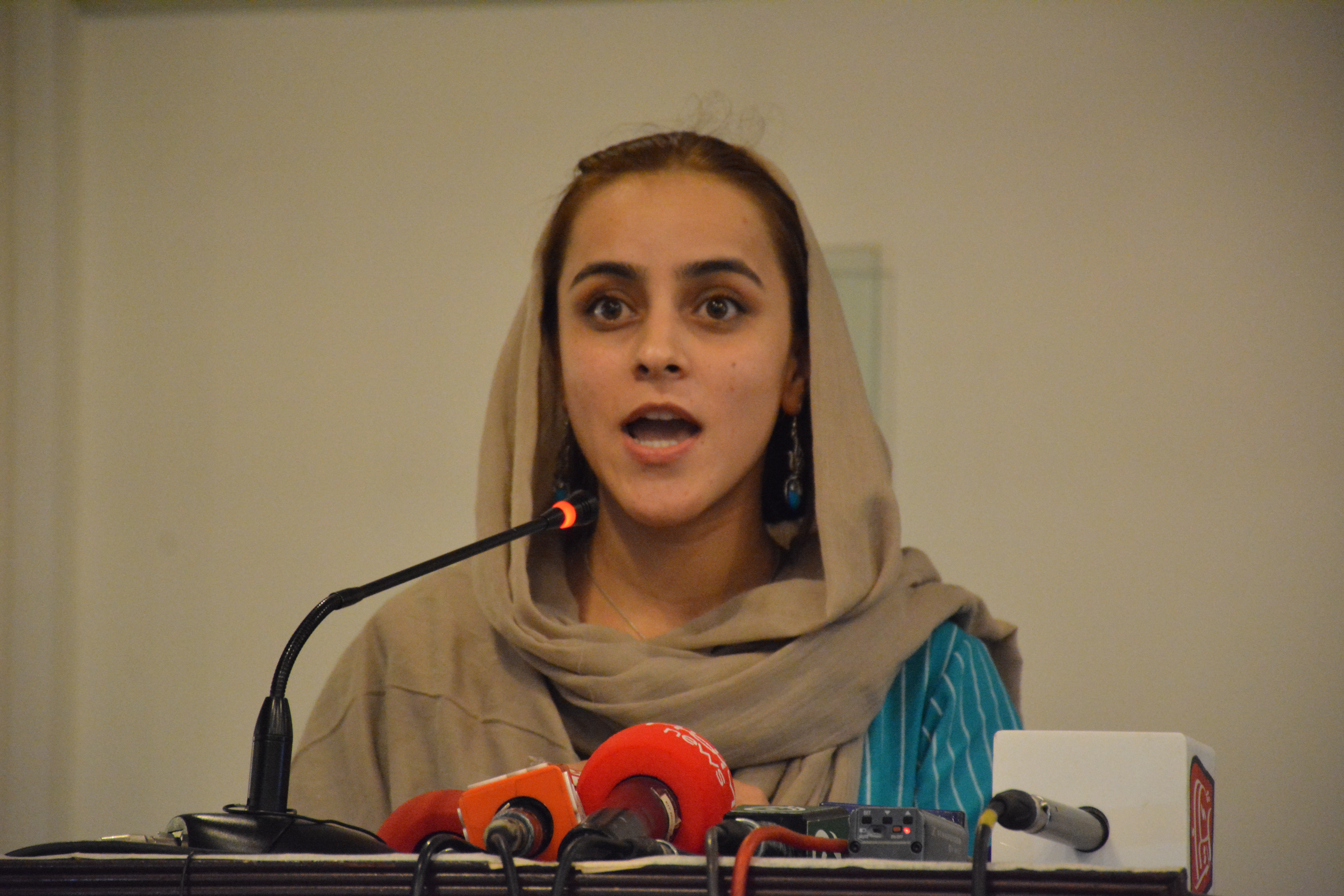
Nargis Taraki and Hijratullah Tahir, young emerging leaders, representing Afghanistan’s High Peace Council, who travelled with a 5-member delegation all the way from Kabul thanked Afghan Studies Center (ASC) – established in April 2017 to give a platform to the youth of Pakistan and Afghanistan – for hosting them and organizing such a wonderful event for youth, where youngsters are starved for such events. They also suggested to have such gatherings in Afghanistan as well, in order to move one step forward in consolidating linkages between the youth of Kabul and Islamabad.

Surprisingly, Nargis shared the news that she has been recently engaged to Nazim Mazhar (part of 5-member delegation from Kabul). “We planned our wedding party, but received a threat, so we had to cancel it and decided to come to Islamabad for this Youth Summit”, she added. The very next moment, they were called on stage along with their group, had pictures with distinguished guests and received good will and prayers from them. All the participants came one by one to greet them on their new journey a head and wished them good luck. The situation got bit sentimental and they pronounced that it felt like home. Afterwards, the Youth Summit resumed after taking an unscheduled break to cheer up the newly engaged Afghan couple.
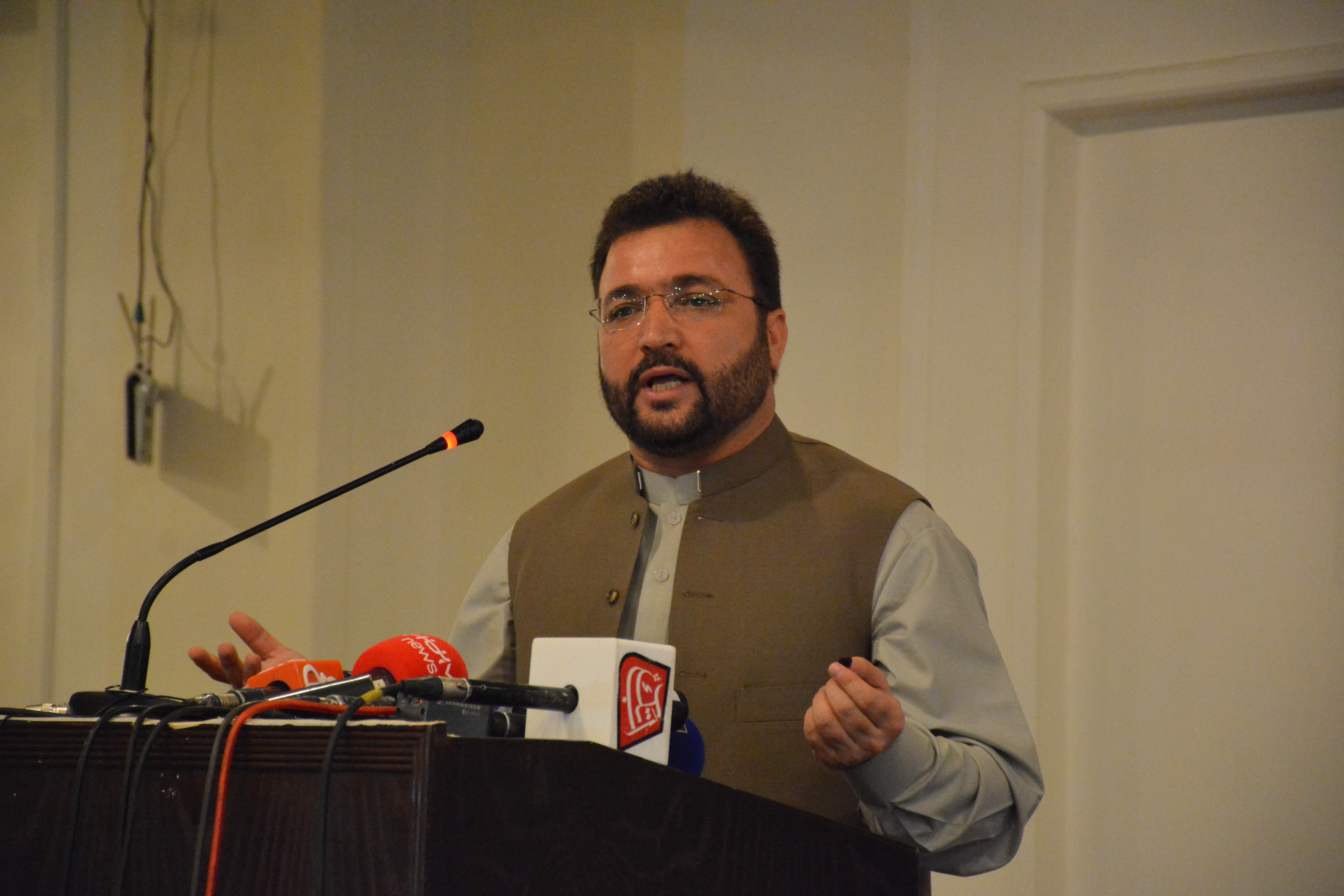
Saleem Khan Kunduzi, former Governor Nangarhar province, put a great responsibility on youth in harnessing peace and development. He assured that youth can play a decisive role in shaping the future of their countries. “You should not think that you cannot bring change just because you are not in power corridors. Remember, the power of people is more than the people in power”, stated Kunduzi while motivating the youngsters to play more active role in their respective communities.
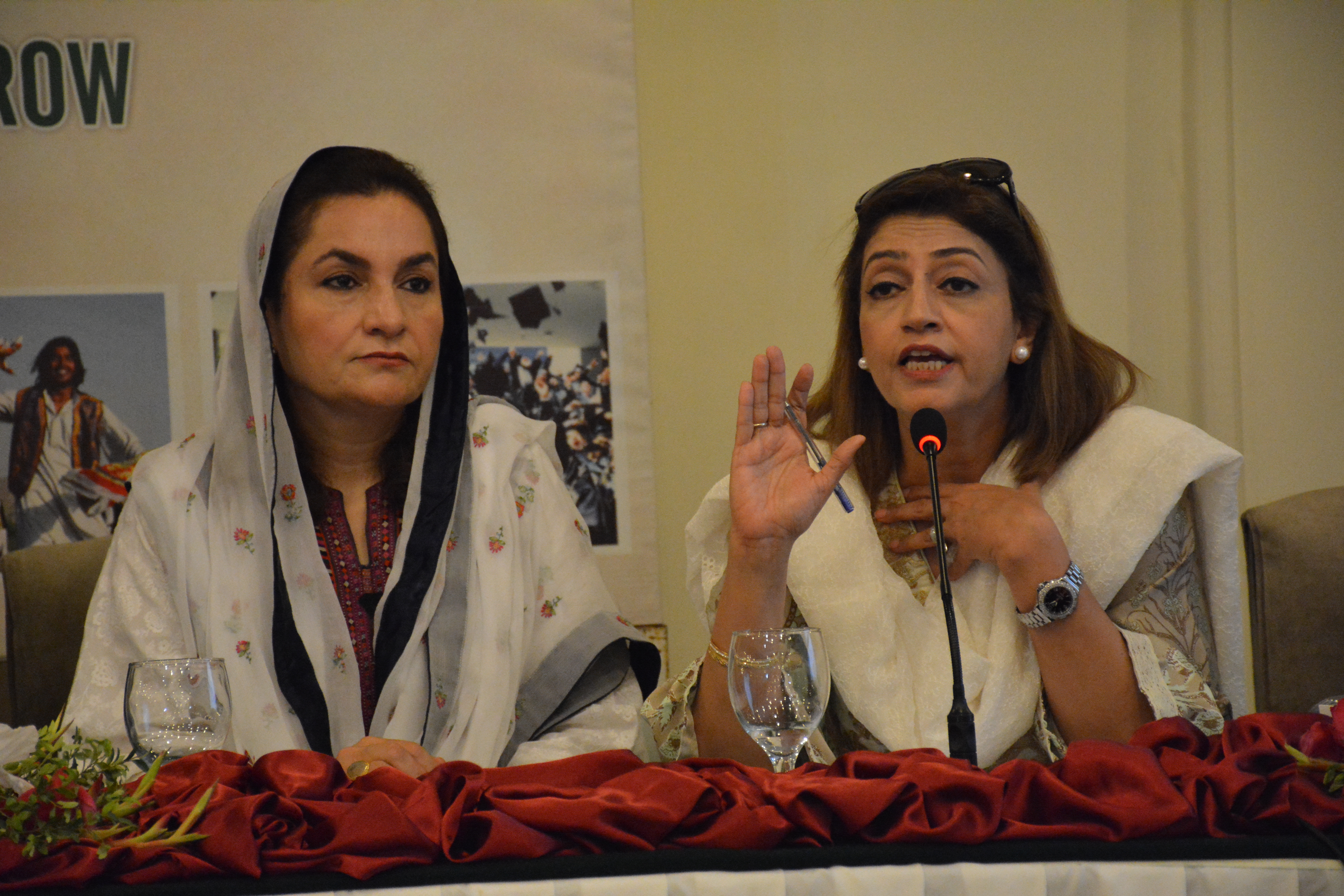
On educational linkages, Dr. Huma Baqai, another distinguished speaker, shared that the Higher Education Commission (HEC) of Pakistan has been committed in facilitating Afghan students to avail educational opportunities across all educational institutions in Pakistan. “HEC is providing 3000 scholarships for students from across the border. Afghans youth have quotas in nearly every university in Pakistan. This is the way forward. We do not know the value for education and the spill-over effects of the educational linkages yet,” she added.
In the interactive Q & A session, young minds from Afghanistan and Pakistan posed many questions in front of the distinguished panel and some had comments and suggestions. The questions were mainly about visa issues, more scholarship opportunities for Afghan students – for females in particular, blame-game in the media and bilateral trade. The panelists responded that Afghans should not forget that Pakistan is not a developed country; Pakistan has resource constraints and bureaucratic problems and many other issues. Yet, Pakistan is doing whatever it can in its limited capacity and both countries have come a long way in last few years.
There has been a lot of progress regarding visa easement. HEC has allocated 30% scholarships exclusively for Afghans, issues regarding bilateral trades are being discussed and mechanisms are being put in place. So, a lot is happening. We just need to be patient and build on confidence building measures and move forward further and further, panelists apprised the youth present of the latest developments.
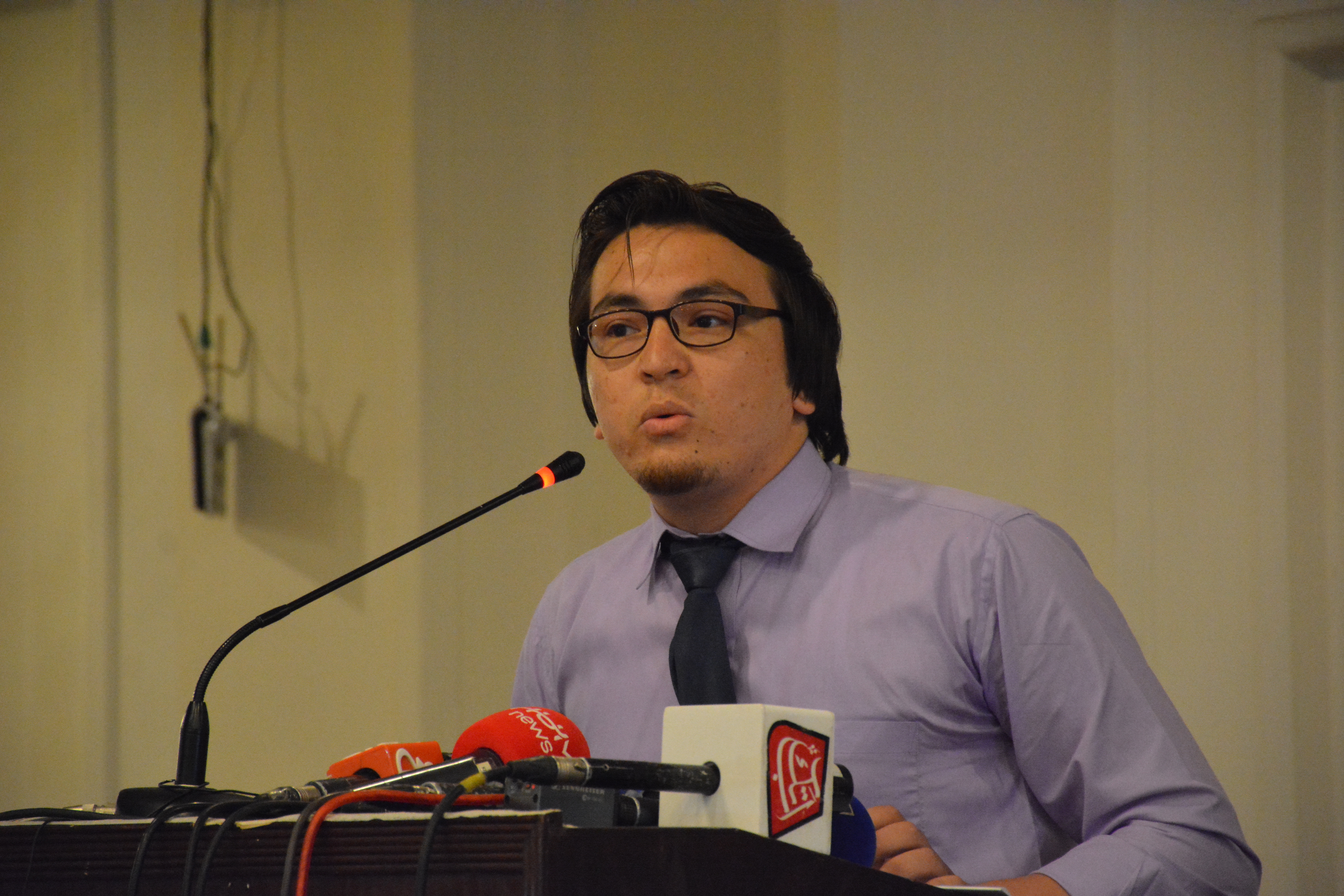
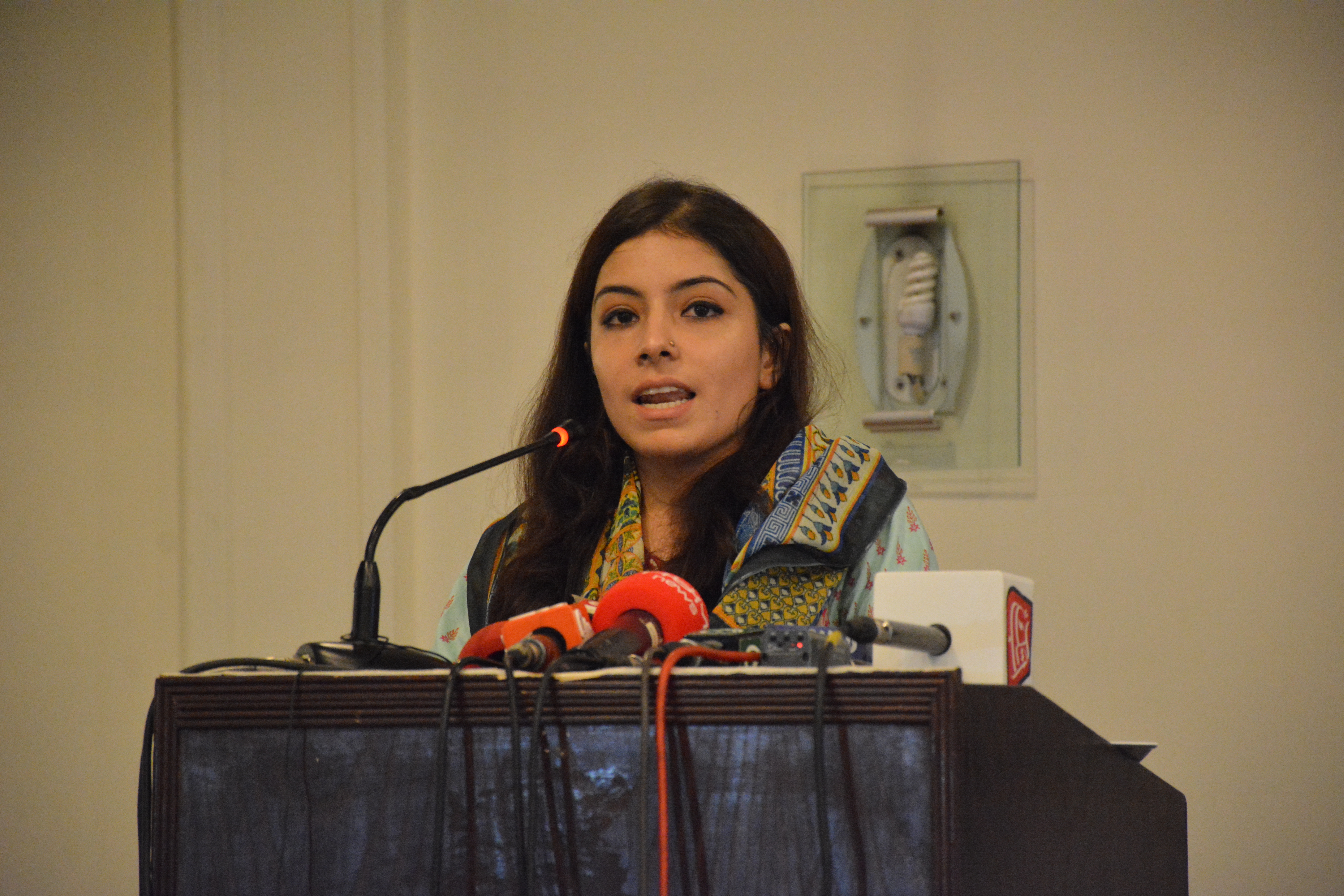
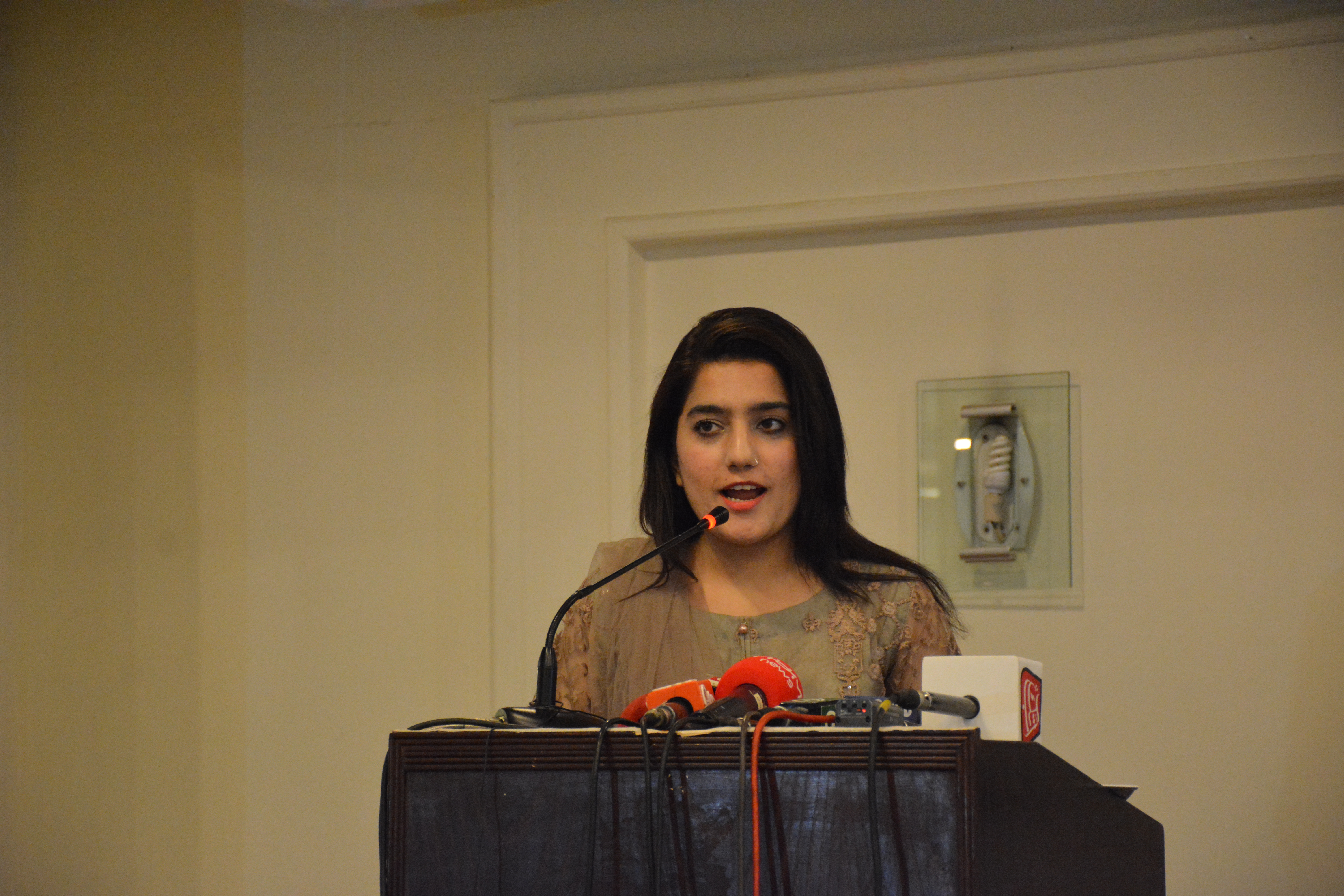
Afterwards, few Afghan and Pakistani participants, as youth ambassadors, conveyed their messages to the audience. They highlighted the positive role that youth can play to build peace and social cohesion in the region. They foregrounded their importance as a large and dynamic segment of population in both the countries, with genuine stakes in stability and prosperity. They especially stressed on the crucial need for providing them with platforms, such as Afghan Studies Center, for voicing their grievances and participating in the decision-making process to ensure that future development policies do not exclude the potentially positive role that young people can play in ensuring peace and security.
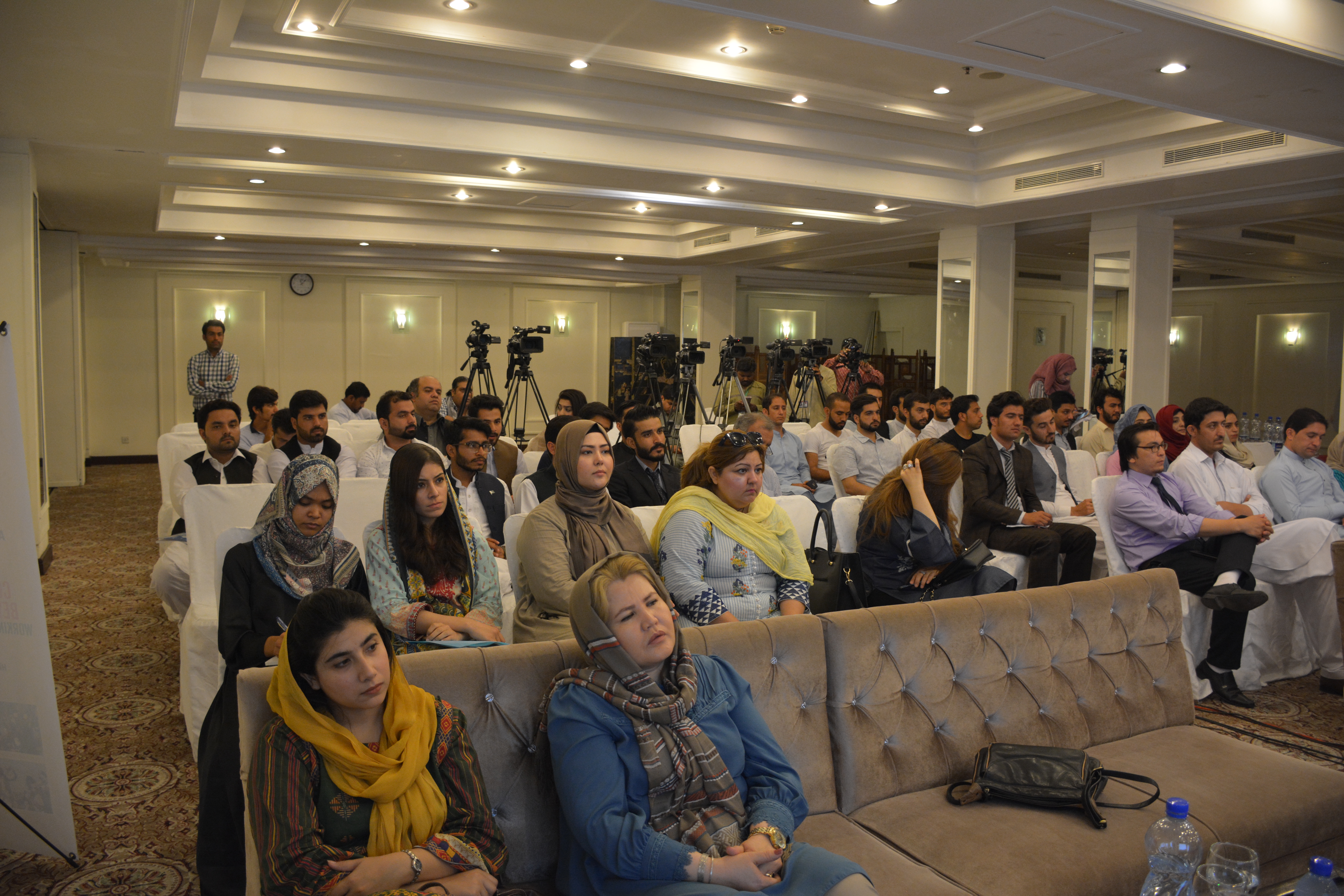
The crux of these messages was that the road ahead for youth in Pakistan and Afghanistan is a difficult one. Despite this, these young people were not without hope. The participants also expressed their appreciation for the emphasis Afghan Studies Center has placed on youth thus far and hoped that the Center would take up and sincerely pursue the voices of youth at appropriate platforms and authorities.
Other members of Afghan delegation, which was invited for the 17th meeting of ASC’s sister organization Center for Research and Security Studies’ (CRSS) Pakistan-Afghanistan Track 1.5/II initiative Beyond Boundaries, included Eng. Kamal Safi; Member of Parliament (Kunduz), Gul Ahmad Kamin; Member of Parliament (Kandahar), Gulali Noor Safi; Senator and Member of Afghanistan Cricket Board, Maj Gen (r) Afzal Aman; Former Deputy Minister of Defence, Laila Jaffari; Member of High Peace Council, Fawzia Ehsani; Former Deputy Minister, Mozammil Shinwari; Honorary Advisor, Former Deputy Minister for Trade / Chief Executive OESP, Pamir Patang; Security Expert, and Waris Hasrat; Senior Journalist Ariana Television Network News.
A day earlier, Afghan and Pakistani delegates visited Quiad-i-Azam University (QAU) and National University of Science and Technology (NUST), Islamabad to interact with the youth and faculty members to discuss Pak-Afghan detente and the Afghan peace process. The interactions aimed at sensitizing them on the latest developments regarding the aforementioned themes, so that the conversation can be taken forward to the class room settings and youth can be cognizant of the need for friendly neighborhood, and complexities of bilateral relations.
In conclusion, Executive Director CRSS and ASC Imtiaz Gul stated that perception has a key role to play in bilateral relations. Afghans must understand that Pakistan is not a developed or a western country. Pakistan too have its issues which include limited resources, large population, bureaucratic hurdles, corruption, political compulsions and so on. Therefore, no one should expect magical things from Pakistan. Though, as we all are seeing that progress is slow but it is visible. We must forget the past and move forward step by step. This is the only way forward.
The session concluded with group photos and lunch.
© Center for Research and Security Studies (CRSS) and Afghan Studies Center (ASC), Islamabad.



